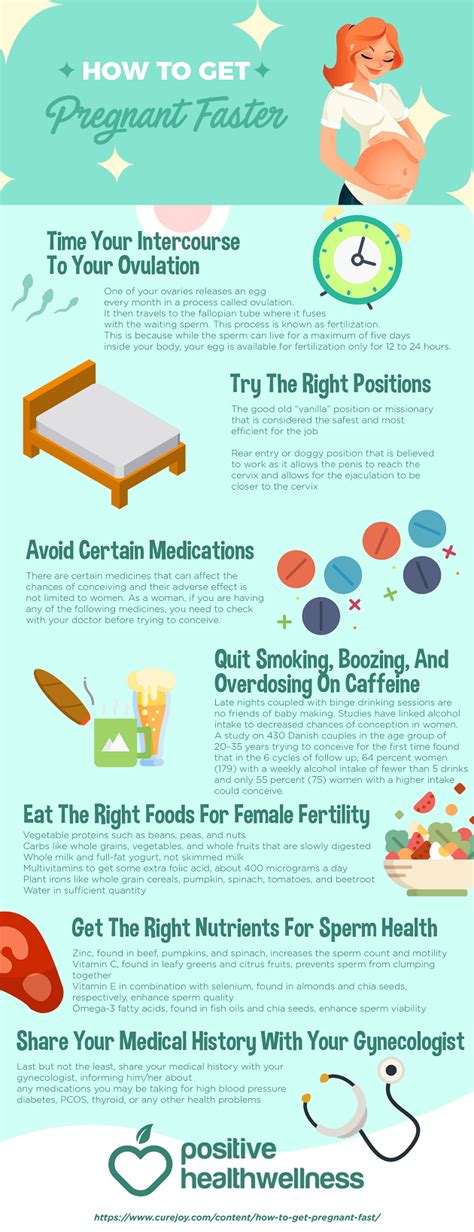Pregnancy: Your Journey to Conception
Trying to conceive can be an exciting yet sometimes challenging journey. Understanding your body's natural rhythms and making informed lifestyle choices can significantly increase your chances of getting pregnant. This guide provides practical advice and tips to help you on your path to parenthood.
Understanding Your Cycle: The Key to Timing
Knowing your menstrual cycle is paramount. Ovulation, the release of an egg from your ovary, typically occurs around 12-16 days before your next period. This is the optimal time for conception, as the egg is only viable for about 12-24 hours. Sperm, while living longer (up to 5 days), needs to be present in the fallopian tubes to fertilize the egg.
Tracking Ovulation: Methods and Tools
Several methods can help you pinpoint your ovulation:
- Calendar Method: Track your menstrual cycle length for several months to predict ovulation. This method is less accurate for those with irregular cycles.
- Basal Body Temperature (BBT): Take your temperature every morning before getting out of bed. A slight increase in temperature usually indicates ovulation has occurred.
- Ovulation Predictor Kits (OPKs): These home tests detect a surge in luteinizing hormone (LH), which precedes ovulation.
- Cervical Mucus Method: Observe changes in your cervical mucus. Fertile mucus is typically clear, stretchy, and slippery.
Lifestyle Factors that Influence Fertility
Beyond tracking your cycle, several lifestyle factors can influence your chances of getting pregnant:
Diet and Nutrition:
A balanced diet rich in fruits, vegetables, whole grains, and lean protein is crucial. Folic acid is particularly important, as it helps prevent neural tube defects in the developing fetus. Consider a prenatal vitamin containing folic acid even before you start trying to conceive.
Exercise:
Regular moderate exercise is beneficial for overall health, but excessive exercise can interfere with ovulation. Aim for a healthy balance.
Weight Management:
Both being underweight and overweight can negatively impact fertility. Maintaining a healthy BMI is essential.
Stress Reduction:
High stress levels can disrupt hormonal balance and affect ovulation. Incorporate stress-reducing techniques like yoga, meditation, or spending time in nature.
Sleep:
Adequate sleep is crucial for hormonal regulation. Aim for 7-8 hours of quality sleep per night.
When to Seek Medical Advice
If you've been trying to conceive for a year (or six months if you're over 35) without success, it's important to consult a doctor or fertility specialist. They can perform tests to identify any underlying medical issues that might be affecting your fertility.
Creating a Supportive Environment
Remember that conceiving is a journey, and it's crucial to be patient and kind to yourselves. Support each other, celebrate small victories, and don't hesitate to seek guidance from healthcare professionals or support groups if needed. This journey is as much about emotional well-being as it is about physical health.
Keywords: getting pregnant, how to get pregnant, pregnancy, fertility, ovulation, conception, menstrual cycle, lifestyle, diet, exercise, stress, sleep, weight management, folic acid, prenatal vitamins, trying to conceive, TTC, fertility specialist, doctor, medical advice.
